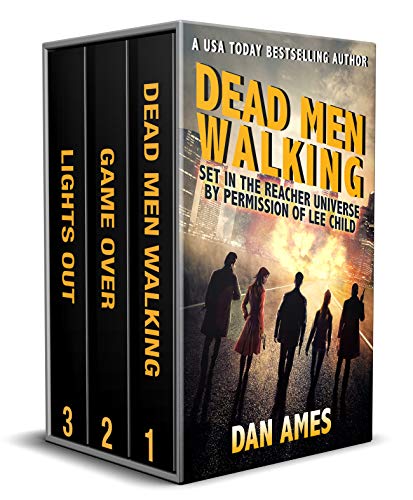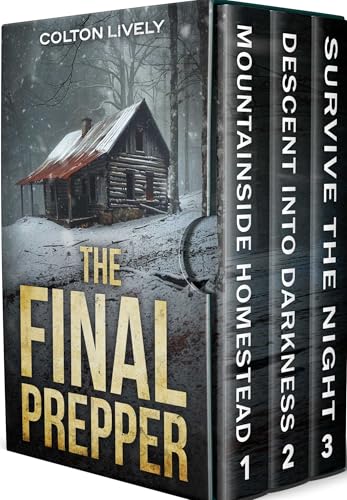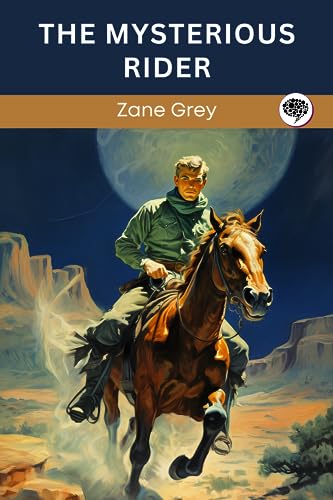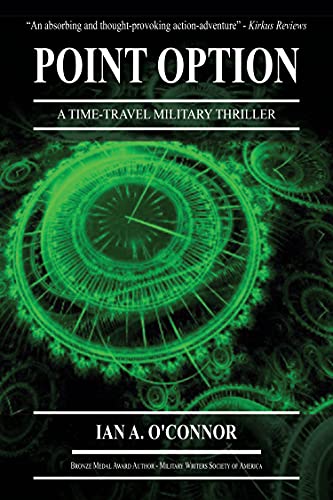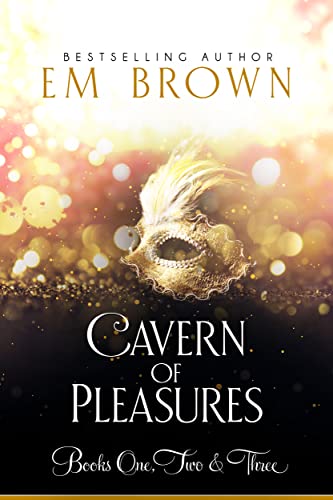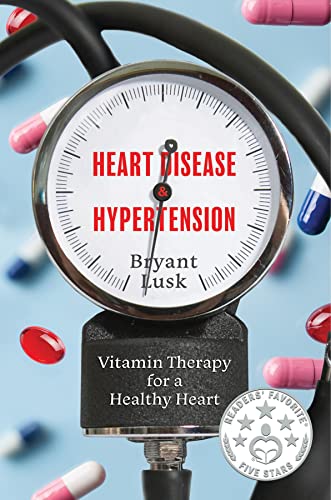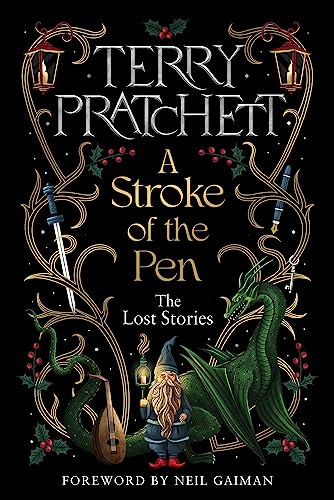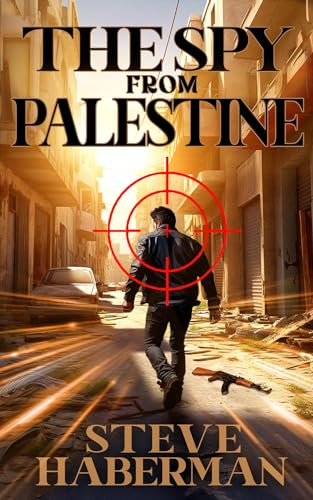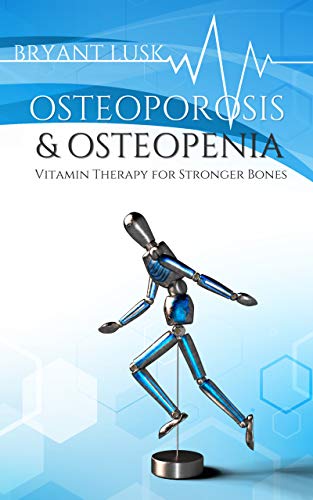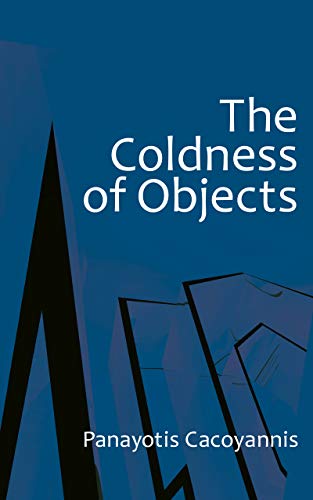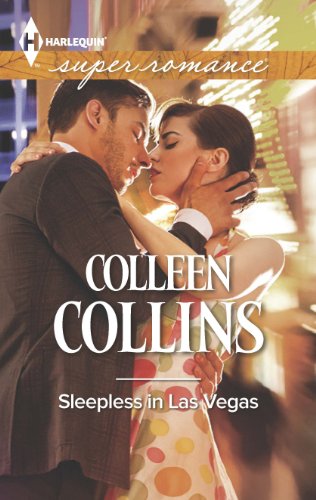Join our thousands of happy subscribers. It's FREE!
Get Deep Discounts on Premium Bestsellers, Plus Free Books for Your Kindle! – Subscribe now http://www.bookgorilla.com/kcc
Every person on the planet is connected to the Internet - and the concept of personal privacy is on its knees. Working together, the governments and technology companies of the world have created a dragnet capturing the private calls, emails and Internet traffic of almost every citizen in the western world.
Dominating this new landscape is WhiteStar Corporation, led by its mysterious CEO Kaito Tanaka. Over the last few years, WhiteStar has revolutionized entertainment and social media with an addictive augmented reality game with one billion players people worldwide. High-tech glasses and contact lenses merge the game and the real world. While the players lose themselves in this blended world, WhiteStar tracks everything they say and do - and sells that information to the highest bidder.
Inside an imposing steel and concrete complex nestled in a quite suburb of Sapporo, Japan, Kaito Tanaka obsessively prepares for the imminent release of a new and lethal version of the game.
Deeply concerned by the increasingly secretive and reckless behavior of Tanaka, the WhiteStar board insists on an inspection of the Sapporo compound by a small group of specialists in their field, led by Professor Ben Skinner. As Skinner and the team arrive in blizzard-bound Sapporo, a small group of online freedom fighters finalize preparations for a massive coordinated attack on the game.
Over the next two days, events around the world accelerate out of control.
Events that lead to the greatest peacetime loss of life in human history.
 Brian James Craighead (1965 - present) was born in the highlands of Scotland, grew up in Aberdeen before working in various windswept and interesting corners of the world. Starting life as a software engineer, Brian moved to Bermuda. where his first daughter (Rachel) was born. After seven years working in paradise, Brian moved to Sydney, Australia and began his career in digital marketing. Brian now splits his time between Singapore and Sydney, running a digital agency while writing tech thrillers based on his experiences. Brian married way out of his league, and now he spends his spare time with his wife Diane and two teenage daughters Rachel and Sara.
Brian James Craighead (1965 - present) was born in the highlands of Scotland, grew up in Aberdeen before working in various windswept and interesting corners of the world. Starting life as a software engineer, Brian moved to Bermuda. where his first daughter (Rachel) was born. After seven years working in paradise, Brian moved to Sydney, Australia and began his career in digital marketing. Brian now splits his time between Singapore and Sydney, running a digital agency while writing tech thrillers based on his experiences. Brian married way out of his league, and now he spends his spare time with his wife Diane and two teenage daughters Rachel and Sara.The Sapporo Outbreak
* * *
Now, 9 KND FREEBIES – Just For Today!
Prices may change at any moment, so always check the price before you buy! This post is dated Monday, December 16, 2013, and the titles mentioned here may remain free only until midnight PST tonight.
Please note: References to prices on this website refer to prices on the main Amazon.com website for US customers. Prices will vary for readers located outside the US, and even for US customers, prices may change at any time. Always check the price on Amazon before making a purchase.
* * *
Marcy Paget worked full-time putting her husband through University. When he finally became a success, he dumped her for a trophy wife more than ten years younger, leaving Marcy to raise their four year old daughter on her own.
* * *
* * *
Pride and Honour – The Battle for Saxony
by Nathaniel Burns

* * *
* * *
Assassin Hunter : A True Crime Story
by August Palumbo
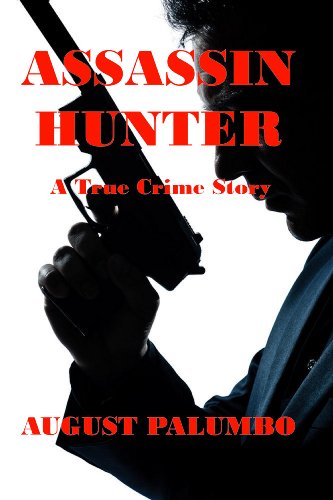
* * *
Hard Duty: Merkiaari Wars 1
by Mark E. Cooper

* * *
I Bring the Fire Part I : Wolves (A Loki Story)
by C. Gockel

* * *
Maid for the Billionaire (Book 1) (Legacy Collection)
by Ruth Cardello
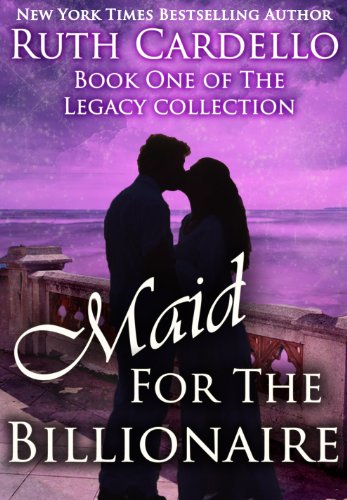
in its Audible Audio Edition, Unabridged!
* * *
* * *
Check out our Free Book Search Tool for a boatload of free books
or check here for the best deals today on Kindle!
KND Freebies: ALONG THE WATCHTOWER is featured in today’s Free Kindle Nation Shorts excerpt
2013 Readers’ Favorite Book Awards
Bronze Award, Drama Category -Fiction
Poignant and powerful…
Can a broken warrior make his way safely past the demons of guilt and memory on the
road back from hell?
Part love story, part fantasy adventure, part family drama, Along The Watchtower is the moving chronicle of the recovery and personal growth of a severely wounded Iraq War vet.
5-star praise from Amazon readers:
A wounded vet’s journey of recovery in two worlds
“…With compelling storytelling, coupled with a writing style that vividly paints a clear picture of
both worlds, I was captivated by Freddie’s character even though I am neither a veteran nor a gamer. …a very imaginative story that crosses multiple genres.”
This seemed so real
“I have never been where Fredrick has been, but I could see it through his eyes. That is the best thing I can say about a book I loved. That it made me think and that I got lost in the telling.”
an excerpt from
Along The Watchtower
by David Litwack
I awoke on a slab.
No. Too soft for a slab. Softer than a corpse would need. Not a slab but a stretcher.
A fog swirled in my brain. I picked through its wisps, searching for a thought to cling to. Then my combat training kicked in. First rule—assess the situation. I steadied myself and tested my senses, starting with touch. I flexed each finger until it grazed the pad of the thumb. So far, so good. Next I listened. Not much to hear. More of a hum than silence. But I could feel a vibration nearby, a throbbing like the heart of a dying beast. My sight might tell me more, but I was afraid to open my eyes. Instead, I sucked air in through my nose.
The smell of jet fuel. Then a wind so strong it rippled my cheeks into folds.
I was outside on a runway. Alive.
Minutes later, motion as my stretcher was wheeled up a ramp and locked into place. A gentle hand rested on my arm. A sting on the soft skin at the crook of my elbow, a needle inserted. Then, still in silence, a bump from below, wheels separating from tarmac.
I knew what that meant. Farewell Iraq. Hello Ramstein.
While the critical care air transport climbed, my mind churned, still trying to plan the raid. Not that morning’s patrol into Al-Nasiriyah, but the World of Warcraft raid scheduled that evening with my guild. Gaming was how I always coped, at least until that morning when it nearly got me killed.
I started gaming after Dad died and kept playing when Joey would go on a binge or while Mom prayed through the garret window to the ocean. I even played after Richie ran off. But I shouldn’t have been gaming that morning. I should’ve been focused on my job as First Lieutenant Frederick Williams, leading my squad into bandit country. Instead I was channeling Sunstrider, head of the Lightbringer guild, trying to figure out how to get past the trolls at Blunderbore’s Gate.
I still didn’t know the cost of my inattention.
When the IED went off, I felt a shock wave but heard no sound. Maybe my eardrums had imploded. But the impact rattled the roots of my teeth. Then the pain in my legs hit, like shards of glass fraying the nerves. My first thought: not the legs. Better to die.
I’d been training to dunk on that old basket at base camp and had just managed to curl one knuckle around the rim. Not bad at five foot ten. Now, like everything else I’d ever hoped for—blown away.
Then I remembered. The archangel collapsing on me, spilling blood on my chest.
The fog in my brain turned into a movie screen, replaying images from that morning. The roof of the Humvee blown off, the sky above turning from blue to white to red. The medics cutting open my shirt.
“Help the archangel first,” I yelled, though I couldn’t hear my own words. “It’s not my blood.”
I watched their lips move and tried to read them. Concussion, they seemed to be saying. The blast had battered my brain. It must be my blood since I was soaked in it.
And while I tried to block out the pain, the oddest of thoughts struck me—I’ll never make it to level eighty.
Just what I had coming. Nine months and seven days in Iraq, my squad patrolling a hot zone, and I’d been daydreaming about a raid in a fantasy game. When the IED went off, I should’ve died.
I grabbed the edge of the stretcher and tried to roll onto my side. Big mistake. My mouth opened, but I couldn’t hear my scream. The CCAT nurse rushed over and fiddled with some tubes. Everything started to spin like the plane was in a dive. I blacked out.
It happened sometime after that. Dreams of a fantasy world like in the game. Of course, I was frightened at first. But then I figured, what the hell. Couldn’t be worse than this place.
Chapter One
A Ringing in the Ears
I awoke to the tolling of a bell.
Not the sweet chime of vespers or the carillon of noon. This bell had a more somber sound, one that I’d dreaded since childhood. With each lingering clang, my bed quilt weighed more heavily upon me until it felt like a paladin’s shield on my chest.
I squeezed my eyes shut and forced my mind to envision a different place, a garden I’d played in years before. I was nearly there, could picture the dust motes floating across the light that filtered through gaps in the pergola. I could almost smell the flowers.
Clang. The garden vanished in a burst of black smoke. The scent of flowers was replaced by the stench of charred wood. I pressed my hands to my ears.
Clang. On the seventh toll, I flung off the quilt and jumped out of bed.
Why wait for Sir Gilly to burst into my chamber and announce what I already knew? I’d knelt by my father’s bedside the night before, saw his face so pale, watched his lips struggle to speak.
“Stay strong, Frederick,” he managed to say. “And beware the cunning of the spinning wheels.”
“But how?”
“Focus,” he said, “on what you hold most dear.”
I’d prepared my whole life for the trials, and now they were upon me. I could feel them coming closer with each clang of the bells. For my father, the king, was dead.
***
I grabbed my sword and rushed into the hallway, buckling my scabbard as I went. It was well into the night, and the candles along the wall had burned low. Their flickering cast gloom into the corners of the vaulted archways, and the wax dripping down their length sculpted ghastly shapes over their sconces. I hurried past. When I reached the office of the lord chamberlain, the door stood open. He was waiting.
I’d known Sir Gilbert since birth. He had been my mentor in all things that mattered and my father’s before me. By the time I was ready to be trained, his features had settled with age. The most prominent were jowls that hung about his chin and jiggled when he laughed. When I was little, I thought they resembled fish gills, and so I called him Sir Gilly.
I spent more time with Sir Gilly than with my father. He was an affable man, quick with a jest or a magic trick. But when I was seven, everything changed. My mother died that year, and I became the sole heir to the throne. I knew then that someday the future of the kingdom would depend on me. Now that time had come.
The gleam was gone from Sir Gilly’s eyes. His jowls trembled, but not from laughter.
“I’m sorry,” he said. “He was your father and my friend. A great man. But neither of us has the luxury to mourn.”
I understood. I’d been taught all my life about the Burning Legion, and the treaty that kept the Horde at bay. But the treaty relied on magic bestowed on the reigning king. Now Stormwind was without a reigning king, and the magic that protected it would begin to fade. For the next thirty days, I’d be tasked with the trials and only if I overcame them would I succeed my father to the throne. If not, the Horde would overrun the Alliance—the end of life as we knew it. For all my lifetime of training, I felt unprepared.
“What happens now, Sir Gilly?”
“For a start, you must stop calling me Sir Gilly. I am the advisor and you the dauphin until the days of anointment are finished. If you prevail, I will be Sir Gilbert, lord chamberlain, and I shall call you Sire. If you fail, what we are called will no longer matter.”
“I won’t fail,” I said, wondering if failure were possible. For the past millennium, an unbroken line of Stormwind kings had kept the world of Azeroth free.
His gaze bore into me, no longer my mentor, no longer my friend. But every bit the advisor.
“Why do you say that?”
“Because of everything you’ve taught me.” I rose to my full height and lifted my chin. “And because I’m my father’s son.”
“You’re a brave dauphin, but you know nothing of what’s to come.”
“But all your teachings, the stories of trials past—”
“Mean little now.” He leaned on the oaken table, his fingers splayed wide against the wood grain. It was a familiar pose, the teacher urging his student to comprehend. “Each generation is different, each trial unique. Every prince must stare into the spinning wheels alone.”
I felt a fluttering in my stomach, a tightening in my chest. Sir Gilly must have seen my distress, because he came from behind the table and rested a hand on my shoulder, as he’d done so often when I struggled in training.
“Come, Dauphin. Walk with me.”
He led me up to the parapets of the castle. Despite the pre-dawn haze, I could make out the land below. I looked out past Elwynn Forest to the village of Goldshire, with its thatched-roof cottages and patchwork quilt of green pastures stitched together with stone walls. But beyond them, looming over the houses and fields, I could see the mountains of Golgoreth, high, jagged peaks where the world of the Alliance ended and the realm of the Horde began. Already, storm clouds gathered over the ridge. As I paused on the ramparts to watch, a wind gusted from the east, an unnatural gale that roared in my ears and caused ripples in my skin.
“You feel it?” Sir Gilly said. “Their power builds in the hope that you will fail. Everything is changing now, different than what you’ve come to expect.”
“How so?”
He stretched a trembling finger toward the distant mountains.
“Their evil flows like fog on a November day, seeping into everything. When your father died, the protection he gave to the countryside began to weaken. It will grow weaker still until only the walls of Stormwind provide protection. At the end of the thirty days, they too will fail.” He turned to me, his face inches from mine. “First lesson: you must not, under any circumstances, go beyond the castle walls during the days of anointment.” His brows wriggled and knotted. “And the castle itself will not be safe. The mist will enter the smallest of cracks and transform into strange beings, the source of the trials.”
I took two quick breaths and steadied myself as I’d been trained. “Tell me what I must do.”
“Second lesson: you know about the watchtower?”
I nodded. As a child, I’d sneak up there to play but knew well how it changed during anointment.
“None but you may go there for the next thirty days. For as you know, following the death of a king, the advisor is charged with mounting two bejeweled disks, one facing east and one west, transforming the watchtower into a dream chamber—a place where the dauphin must go to dream, twice each day, at sunrise and sunset. What you are shown and how you respond will determine the fate of the kingdom.”
“What will I see?”
“That, I cannot say. No prince before you has left word, written or spoken, about what he saw through the spinning wheels. Most claimed they remembered nothing at all. Others refused to tell. But in some mysterious way, what you dream will influence how you respond to the trials. The answer lies in the castle, if you have the courage to explore.”
“Explore? But I know every inch of this castle. I’ve wandered throughout it since I was a child.”
“Ah, but you were never a child during anointment. The castle you know will change. Stairways will come into being where none existed before. You’ll go down them, but when you turn back, they’ll be gone. Archways and tunnels will appear, leading to odd chambers where you’ll meet the beings I spoke of. Some will be guides—elves or priests or mage. Others will mean you harm, spectral demons, agents of the Horde. Assassins.”
“How will I know the difference?”
“Trust what’s in your heart. If that’s enough, you will save Azeroth for another generation. If not—” A sorrow came over him, weighing down his features. “I’ve lived too long. I put your father through this and now you. I wish I had died before this day.”
I’d never seen him so downcast, my source of knowledge and strength. I fingered the hilt of my sword, as I had at the start of so many training sessions. My grip on the braided leather tightened.
He looked at my hand and shook his head.
“No, Dauphin. You cannot fight this enemy with a sword.”
“But to defend against assassins?”
“It’s not your body they seek to harm. These assassins can’t threaten your being.”
“Then what is their purpose?”
“To extinguish your spirit. To make you abandon the kingdom to darkness. Their purpose is despair.” He turned toward the watchtower, standing erect, every inch the advisor. “Come. It is time to begin.”
Chapter Two
Ramstein Air Base
An echo of an echo. A dream interrupted by hushed voices talking the way people do near the deceased at a wake. One voice gruff, a man’s, possibly a smoker. The other mousy, almost a squeak. Three fingers pressed on the inside of my wrist. Thick fingers.
“His pulse is strong. Let’s give it a try.” The man’s voice rose. “Freddie, can you hear me?”
I recognized the name. Freddie. Short for Frederick. A name that must be me. Then panic. I’d been dreaming of castles and kings. Why would I want to be Freddie?
“Try his rank,” the woman said. “They’re trained to respond by rank.”
“Lieutenant Williams.”
An image flitted across my mind. Iraq. An explosion. My mind recoiled. I groped about in the darkness, trying to find the castle again.
“Did you see that?” the man said. “His eyelids twitched.”
“Lieutenant,” the woman said, louder now. At least I was no longer deaf. “Can you wiggle your thumbs?”
There was somewhere else I needed to be, something important I was supposed to do. My mind was a jumble. When I couldn’t fit the puzzle pieces together, I sent a signal to my thumbs.
“Wonderful.” A touch on my palm. The woman this time. Slender fingers. “And can you squeeze?”
I did. She squeezed back. At least I wasn’t alone. I’d always worried hell was being alone for eternity.
“Good. Now your toes.” I felt a draft as she removed the sheet. “Can you wiggle your toes for me?”
I concentrated and wiggled my toes. She sounded pleased. But then I reached for the next level before I was ready. I tried to bend my knee.
My back arced like an electric shock had run through me. I wanted to scream but had forgotten how to make a sound.
“A convulsion, Doctor?”
“Don’t think so, Mary. More likely pain.”
“Should we keep trying to wake him?”
I waited, not understanding the question but feeling it was important. The pain kept distracting me. Please, send me back.
“No. He needs more time. We’ve done all we can here. Put him back under and we’ll send him home. Let the boys in the States do the rest. He has a long road ahead.”
I wasn’t sure what “under” meant, but I had questions before I got there. What road was he talking about and why was it so long? I shifted my weight onto my elbow and tried to sit.
Oh Christ, my legs.
The smooth sense of plastic gliding across the small hairs on my arm. The pain subsided. My mind began to drift.
A bright flash. Soldiers screaming. Dogs barking. Where was my castle? Where was my quest?
Then slowly, sweet darkness. And the dream resumed.
Chapter Three
The Bequest
Sir Gilly led me to the death chamber. Already I could feel the mist from the mountains creeping into my bones, intruding like a malaise. The trials weighed heavily upon me. That, and the watchtower. But Sir Gilly insisted I bid farewell to my father first.
“We’re in unfamiliar territory,” he said, “and I know little of the right path. But of one thing I’m certain. We can do no good by forgetting our humanity.”
We stopped outside the entrance. He grasped me by the elbow and whispered, as if the ghost of my father might hear, describing the protocol of succession, though he’d explained it twice before.
“The king’s remains will lie in a casket on a gold pedestal. Once the pallbearers remove the cover, you’ll see a gray shroud covering his face. I will peel it back to below the lips. Bits of clay will cover your father’s eyes and mouth. Look until you recognize him, then nod. I’ll give you a parchment to sign and seal, your first act as the dauphin. Then kiss his forehead, a last goodbye. Be prepared for the taste of death, like dust in winter. Take a moment. He was your father as well as the king. When you’re ready, I’ll replace the shroud and close the cover for the last time. As a sign of respect, back away from the casket, never turning until you’re out the door. Do you understand?”
I was too numb to do anything but nod.
“You must answer, Dauphin.”
“Yes.”
“Say ‘I do, Advisor.’ I’m sorry, Frederick. It’s the law. We must follow the proper form.”
“I do . . . Advisor.”
Once we entered the death chamber, Sir Gilly did as he had described. I stared at the corpse, the muscles of my shoulders throbbing as if I’d held them stiff throughout the months of my father’s slow decline. I loved him and was heartbroken to see him die. But more than anything, I dreaded becoming king.
***
Minutes before sunrise. We stood by the portal at the base of the watchtower, an opening so narrow, only a single man turned sideways could pass through. I took a deep breath and entered. Inside, twin staircases spiraled upward around a stone core. In normal times, one was designated for the ascent and the other for the descent, but as with so many things in the days of anointment, the rules had changed.
“Use the leftmost one at sunrise,” Sir Gilly said, “and the right for sunset.”
“What if I encounter an assassin blocking my way? May I escape on the other side?”
“Obey the rules, Dauphin. Do not deviate. Any encounter with a spirit or demon is meant to be.”
I scurried up the hundred and one stairs to the top of the watchtower, pausing on the last landing to wait for a red-faced and out-of-breath Sir Gilly. He needed a moment before entering, giving me a chance to survey the chamber.
I hadn’t been to the watchtower in many years, its allure nothing but a relic of my childhood. I noted how age had changed the place. On the surface it looked less imposing, as all memories of childhood do, a musty room, perfectly round and six paces across. The tangle of beams that supported the point of its cupola was less impressive now, hung with spider webs and covered with droppings where birds had made their nests. The elaborate molding that some artisan had added centuries before had been worn smooth by rainwater and time.
But one thing was the same, exactly as it had been etched into my memory when I was little. Two circular windows breached the battlement walls. Oculi as Sir Gilly had taught me, great eyes that looked out across the land from this, the highest point of the castle. One faced east and the other west. And now, two platforms had been placed before them. On top of each was a disk framed by a golden rim, with a kaleidoscope of gems in the center—amethyst and amber, emerald and bloodstone. I reached out to touch them, but Sir Gilly stayed my hand.
“No, Dauphin. Your role is to sit and dream.”
He motioned to a wooden stool facing east. Once I was settled, he turned to go.
A sudden agitation overcame me.
“Wait, Advisor. Stay.”
“It is forbidden.”
“Stay only this first time.”
“I cannot. I must be gone before the sun is up.”
Before I could say another word, he fled as if the dawn’s first rays might scald him. The sound of his bootsteps trailed away as he raced down the stone stairs. I was alone.
I left my post and went to the western side to peek past the disk toward the darkened valley below. For an instant, I thought I caught a glimpse of something, two riders approaching through the jungle of Stranglethorn, out of the mist at the base of Golgoreth. Assassins?
I watched until my eyes watered. Nothing but shadows. I shook off the sense of dread and returned to the morning oculus. A red glow had begun to dance on the mountaintops. The sun was rising, casting light over the farms of Goldshire and the trees of Elwynn Forest, lands dependent on my protection. I took my seat once more on the wooden stool and glanced through the gems, doubtful anything would happen. I waited.
At once, I was staring into the teeth of a hot wind whistling through the oculus from the mountains, chasing the rays of the sun.
And slowly, the wheel began to spin.
Chapter Four
VA Hospital Stateside
I stared into a pair of Coke-bottle glasses wedged between a green crepe cap and a mouth-and-nose mask. The magnified eyes behind the glasses crinkled at the corners, a hint of a smile.
“You’re awake,” a muffled female voice said. “About time.”
“How . . . long?” Each word burned as it forced its way up my throat.
“You sure you want to know?”
“Uh-hum.” It hurt to talk.
“Almost two weeks. Medically induced coma.”
“Where . . .?
“VA Hospital. West Roxbury, Massachusetts.”
“Why . . .?”
“I guess they couldn’t find out much about you. No family. Last known home on Cape Cod but grew up in Jamaica Plain. We were the closest so they sent you here.”
I tried to shake my head. Not what I was asking, but I was afraid to move.
“Why . . .?”
“Oh. You mean why are you here. I’ll let Dr. B. answer that. You should drink some water. We’ll need to take it slow. You haven’t had anything in a while.”
I nodded, mostly by blinking. The least movement made my head throb.
She brought a plastic cup over and stuck a straw into my mouth. I took a sip, swished the water around with my tongue, and swallowed. It felt tight going down. She withdrew the straw and waited. I must have looked like hell. Her eyes narrowed, then crinkled again. A latex-gloved hand reached out and stroked my forehead.
“You’ve had a rough time, Freddie. Okay if I call you that? I’m Dinah, your nurse. You know, like,” she half sang, “someone’s in the kitchen with . . . No need for formality here. But we’ll do everything we can for you. You’ve served your tour and you’re home now.”
Home. An image flashed in my mind. A gingerbread house, one of fifteen around a green with a steepled tabernacle overlooking them all. Ours was the runt of the litter, tucked into a half-lot at the end and farthest from the ocean.
The front door for some reason was painted purple and had frosted windows with palm-frond cutouts. Joey used to tell me they were cannabis leaves. Richie claimed they looked like snowflakes. But I knew they were palms. The steeply pitched roof had white scalloped trim, and a tiny balcony on the second floor overlooked the green. The house had four and a half rooms, a kitchen and sitting room downstairs and two bedrooms up—one for my parents and the other for the three of us boys. The half was a garret with a single circle-shaped window where Mom used to sit and pray to the ocean.
The first time I saw it, I was ten. Mom was so happy that day—the ocean at last. The five of us raced each other into the house and scrambled up the staircase to the garret to check out the view. Dad and Mom, Richie, Joey, and me. And now only I was left.
And not much of me, from the look on Dinah’s face.
I blocked out the thought. My mind wanted no part of Iraq. But I wasn’t ready for memories of home either.
I mumbled one word. “Morphine.”
The eyes behind the Coke-bottle glasses sagged, and the green crepe cap nodded. I felt a tube along my arm shift. Then sleep.
***
I stirred to the sound of Nurse Dinah removing the metal cover from a plate of scrambled eggs. Two days had passed, and I’d managed to spend a fair part of them conscious. I’d graduated from water to juice to soup, and now this. I was actually starting to look forward to solid food.
Dinah’s cheerful voice serenaded me as she positioned the tray.
“Big day today, Freddie. A hearty breakfast. But we’ll need to sit you up first.”
She pressed a button on my bed control and a voice responded.
“Yes?”
“This is Dinah, can you send Ralph in?”
A moment later, Ralph filled the doorway to my room. He was dressed all in white—white smock, white trousers, white shoes—and wore a mask and cap like everyone else. And he was huge, almost needing to bow his head to get into the room. I bet he could touch the rim with either hand standing flat-footed.
“This is our newest patient,” Dinah said. “Lieutenant Williams, but he answers to Freddie.”
Ralph nodded, then bent down and reached out a latex-gloved hand to shake mine.
“Pleasure.”
Another mask, another smile. This time I could tell because his great brows slanted upward. I thought I might like Ralph. I suspected I’d be seeing a lot of him.
Dinah and Ralph moved to either side of the bed, grabbed the pad beneath me, and curled its folds into their fists.
“Get ready, Freddie. Take a deep breath.”
I did.
She counted to three and they slid me back toward the head of the bed. I let out a yelp.
“Sorry Freddie. Best way is to do it quickly.”
Then they raised the back of the bed. It was my first time sitting since Iraq.
Ralph started to leave but came back, placed a great gloved paw on my head and rubbed the stubble.
“Hang in there, kid. It’ll grow back.” His voice rumbled like he had his own built-in echo chamber and seemed to linger after he was gone.
Dinah helped me with the meal. Though it was a modest portion, I didn’t think I’d be able to eat it all. Somehow I managed to down every bite. When I was done and the tray shoved out of the way, Dinah cleaned me up, then hovered over me.
“Are you ready for Doctor B.? He thinks you’re well enough to get evaluated.”
“Haven’t you poked me enough?” I was glad to be speaking in full sentences.
Dinah tapped her head.
“Concussion test. Only you can tell us how well your brain’s working. I’ll let Dr. B. know you’re ready.”
She gave me a little wave and followed Ralph out the door.
Now that I was half upright and alone, I did my first self-assessment, like evaluating intel before a patrol or health and resources in Warcraft before a raid. Only more personal.
I tugged at the neck of my hospital gown, enough to peek underneath. My chest had been shaved and was covered with EKG cups. Tubes ran out of my body in various places, a catheter and lines for antibiotics and morphine. I reached up to my head where Ralph had patted. Peach fuzz. The CCAT guys must have suspected damage to my brain and shaved it. Maybe they were right. Machines beeped around me. I watched the peaks and valleys of the heart monitor. No flat line. I was still alive. Finally, I took a deep breath and slipped the sheet back.
The good news—both legs were still attached. But a black brace enveloped the right one from hip to ankle, secured with Velcro. Metal hinges locked the knee straight.
I peeled back a strip of Velcro as gently as I could, wincing at each fraction of an inch. When I’d removed enough, I spread the brace. Scabs and scars decorated both legs. But the major damage was an angry incision held together with what looked like staples running from mid-thigh to below what was left of my knee. It still oozed along the edges.
When I heard footsteps down the hall, I reset the Velcro and replaced the sheet.
A second later Doctor B. came in, a chunky man with enough wrinkles around his eyes to tell me he’d treated a lot of veterans. He seemed friendly enough, though it was hard to tell through the mask. He’d been to see me before, but mostly just to read my chart and nod. This time, he pulled over a chair and settled beside me.
“How are you, Lieutenant?”
“You tell me.”
“Okay.” He checked my chart for the third time. “Let’s start with your eyes.”
He took a penlight from his smock pocket, tested it on his own eyes, and then pointed it at mine. The light was bright but tolerable.
“Follow the light,” he said.
I did, as he moved it from left to right and back again.
“Very good. Now a few questions. Can you tell me your name?”
“You know my name.”
“I’m not the one whose cognitive abilities need testing. Please. We need to follow the proper form.”
“Why?”
“About sixty-eight percent of the wounded we see also suffer from traumatic brain injury. It’s the signature wound of these wars where you guys are subjected to IEDs and other kinds of blasts. No shrapnel hit your head. That’s why they shaved you, to be certain there were no hidden wounds. The brain scan was clear, but you were pretty groggy when they pulled you out. Non-penetrating head wounds can damage the brain without leaving a mark.”
“You think my brain’s fucked up?”
“Just being thorough, Freddie. We use the Glasgow coma scale to measure consciousness, ranking from three to fifteen. Three is alive but unresponsive. You were a five on the CCAT, an eight in Ramstein. Let’s see if I can get you to the next level. Now please tell me, what’s your name?”
Another game. Still trying to level up.
“Frederick Williams,” I said. “Lieutenant first class. You want my serial number too?”
He chuckled awkwardly. “No. That’ll do. Do you know where you are?”
“Only because they told me. VA Hospital, West Roxbury.”
“And who won the World Series last year?”
“You think I’d forget that?”
“Please cooperate. I’m trying to establish you have memory from before the blast.”
“Red Sox.”
“Thank you.” He scribbled something in his notebook, then looked up. “Any headaches?”
“No . . . Yes. I can’t tell with all the drugs you’re giving me.”
“I’ll take that as a yes. Now, please count down by nines from a hundred.”
“You gotta be kidding.”
He tapped his index finger to his head. “Different part of the brain.”
“My brain’s okay. It’s my leg that’s fucked up.”
“We’ll get to that. For now, humor me.”
With an honors degree in architecture, this ought to be easy. But I’d discovered some things didn’t work as well as they used to. I thought a second, then rattled the numbers off.
“A hundred, ninety-one, eighty-two, seventy-three—”
“Impressive. A lot of people can’t subtract that fast even without a concussion.”
“No more questions until I get mine answered.”
Dr. B. laughed. “Fair enough.”
“Why are you all wearing masks? Am I contagious?”
“Just a precaution. IEDs are bad, medically speaking. It’s not enough to plant explosives. They pack them with rocks and gravel. Stuff that can cause infection. The soil of Iraq is contaminated with nasty bacteria called Acinetobacter. Both your legs were pockmarked with debris from the blast. Some of the fragments might have carried the bacteria. It’s generally drug resistant and spreads easily. You’ve shown no signs of infection yet. That’s good, but protocol requires we quarantine you for a while longer. Now, is it my turn?”
“One more.” My throat tightened, and I had trouble getting the words out. “What happened to the archangel?”
Dr. B. gaped at me and set his clipboard down.
“Have you been having dreams, Freddie?”
I began to panic, then realized how strange my question must have sounded.
“The archangel’s a nickname, a handle for Specialist Sanchez, Pedey Sanchez. He was with me in the Humvee when—” My voice trailed off. “You probably don’t know.”
He slid his chair closer and took my hand.
“I’ve read the report, Freddie. I’m sorry. Sergeant Sanchez was killed instantly, his whole chest was blown—”
I turned my head away, one of the few things I could do without pain. I wished I could walk so I could run out of the room.
“I’m sorry,” he repeated. “That was insensitive.” Then after a pause, “The archangel’s an interesting nickname. Why did you call him that?”
It took a minute before I could answer. This was a lot harder than subtracting by nines.
“He was ugly as sin, a shaved head, looked like the top of a bullet, and brows that almost hid his eyes. But they were the gentlest brown eyes I’d ever seen. And he wore this medallion, a two-handed great sword on a cross. A warrior and a saint. Last guy you’d expect to be religious. He approached every patrol like a prophesied event. Used to give each of us a little Bible quote before we headed out.
“He was twenty-five like me, but married with an eight-year-old son. He’d call them twice a day. Before every patrol, he’d touch the cross with two fingers, say the names of his wife and kid, and then kiss the two fingers.
“Pedey was part of my guild in World of Warcraft. His character was a Draenei priest and his favorite spell was the archangel spell because it increased healing. That’s why he took it as his character’s name. The archangel. Looked like a demon but had the soul of an angel. And he’s dead because of me.”
The doctor waited. It was his turn for questions, but he seemed smart enough not to push it. I tried to stay quiet too, but the words slipped out.
“Can I have some morphine now?”
“Are you in pain?”
“Only if I try to move.”
“Then why do you want morphine?”
I closed my eyes. “Just give me some, please.”
“We’re trying to bring you back, Freddie. Morphine’s the wrong direction.”
“I can’t walk. Morphine’s my only way out of here.”
“Lieutenant,” he said loudly enough to make my eyes pop open. “It wasn’t your fault.”
“Yeah. Well, you weren’t there.”
“No. But I know you didn’t plant that IED or pack it with gravel to do maximum harm. And you didn’t start the war. You just fought in it.” He stood and fiddled with the IV tower, poking at the bags, most likely to give his hands something to do. After a minute, he pressed his thighs against the bed and leaned over me.
“I know it’s hard, Freddie. I see too many boys sent home like you. But escaping reality isn’t the way back.” When I didn’t respond, he sighed. “Okay, I’ll give you something to help you sleep. But first, you should know what happened and what the road back looks like.”
I nodded. The dreaded road back.
“You were badly injured. In any other war, you would have died. Today we’re able to get a wounded soldier from the battlefield to a Critical Care Air Transport to a hospital within forty-eight to seventy-two hours. Your leg was hit hard, a 155 mm fragment full force. Shattered the patella and broke off the platform at the top of the femur. The quad tendon ruptured. Damned near severed an artery too. The medics did everything they could to stabilize you. Then you were taken by CCAT to Germany. You had multiple surgeries there to repair the artery and remove dozens of bits of shrapnel and gravel. They managed to save not only your life but your leg. Then they flew you to Andrews and from there to here. We fixed what we could. Rebuilt the femur, patched the patella, reattached the tendon.”
My throat felt suddenly dry as cotton. “Did it work?”
“That remains to be seen. Your leg sustained a lot of damage. Time will tell if the nerves are okay.”
My brain was well enough to suspect the implications, but I tuned it out.
“So no more basketball? Before the attack, I was training to dunk.”
I waited for him to answer. I couldn’t read the expression under his mask, but his silence was deafening. I forced a swallow.
“Will I be able to walk again?”
He hesitated, apparently not one to make false promises.
“That may be up to you. Lots of rehab. You’ll have to relearn how. But you’re young and were athletic, so that will help. Your brain needs to reconnect with that area of the body. Pain is the start of that reconnecting. Think of it as a marathon, not a sprint.” I could see him wince under the mask. “Sorry, bad analogy.”
He wrote out a prescription for something to help me sleep and turned to go.
“I’ll give this to the nurse.” But before he left, he grabbed my chart. After flipping to the third page, he shook his head.
“What now?” I said.
An upturn in his crow’s feet showed he was smiling. “I was checking your height. Five foot ten. You’re too short to dunk.”
“That’s what they all said.”
He replaced the chart on its hook. “This is going to be a long journey, Lieutenant, but I’ll be with you the whole way. Think of me as your guide. And there’ll be others as well.”
He paused in the doorway. I could see him grappling with something he wanted to say. When he finally spoke, his voice was pained.
“You’re not responsible for your friend, the archangel. But you should know that when he fell on you, he probably saved your life. The fragments that killed him were headed for your heart. A lot of people helped save you, Freddie. The archangel was one more. Don’t let his sacrifice go to waste.”
… Continued…
Download the entire book now to continue reading on Kindle!
Free Thriller Excerpt Featuring A REASON TO LIVE by Matthew Iden – 4.5 Stars
On Friday we announced that Matthew Iden’s A Reason to Live is our Thriller of the Week and the sponsor of thousands of great bargains in the thriller, mystery, and suspense categories: over 200 free titles, over 600 quality 99-centers, and thousands more that you can read for free through the Kindle Lending Library if you have Amazon Prime!
Now we’re back to offer our weekly free Thriller excerpt:
A Reason to Live (Marty Singer Mystery)
by Matthew Iden
in its Audible Audio Edition, Unabridged!
Twelve years later, the victim’s daughter comes to Marty begging for help: the killer is stalking her now.
There’s just one problem: Marty’s retired…and he’s retired because he’s battling cancer. But with a second shot at the killer–and a first chance at redemption–Marty’s just found A Reason to Live.
And here, for your reading pleasure, is our free excerpt:
i.
I’ll be leaving soon.
I’ve had time to think. So much time. I was lost for most of it. Scared that I didn’t have purpose, not knowing what to do with the anger and the energy and the life that’s left to me.
But I know now. I know how to put my life back together. What it will take. The sacrifices, the actions. I think you know, too.
It’s what’s kept me alive, you know. Not your interventions. Protecting the body is just half the equation. The spirit has to have a reason to go on, too. And now I have mine.
Please. Don’t try to stop me. I need to do this.
Chapter One
“Detective Singer?”
“Not any more,” I said without thinking–and regretted it. The words stuck in my mouth after the sound was gone, rolling around like stones. Hard. Unwelcome. Bitter. I couldn’t spit them out and couldn’t swallow them.
I was killing time at a coffee shop, slouched in an overstuffed chair that had been beaten into submission years earlier. The café–I don’t know the name, Middle Grounds or Mean Bean or something precious–was a grungy, brown stain of a place flanked by a failing Cajun restaurant on one side and a check-cashing store on the other. A crowd of Hispanic guys hung around out front looking simultaneously aimless and expectant, hoping their next job was about to pull up to the curb.
I looked up from my cup and stared at the girl who’d called me by name. She was slim, with delicate brown hair worn past the shoulders and intense, dark eyes set in a face so pale Poe would’ve written stories about it. She wore black tights and a long tunic the color of beach sand, with only a ragged jean jacket to guard against the bite of early December. Her arms hugged two books to her chest and she toted a massive black backpack so heavy it had her hunched over like a miner.
My answer hung in the air and the silence stretched thin. The girl hesitated, floundering.
I let her. I was in a bad mood. A meaningless Thanksgiving was a week past and all morning I’d looked for something productive to do while my day dragged itself across the floor of my life. When the productivity failed to materialize and my thoughts started to crowd in, I’d come to the coffee shop to forget, not remember. And I’d almost done it, my mind gone gloriously blank until this girl had brought my thoughts tumbling around me like a mid-air collision. She opened her mouth to explain, maybe, or apologize. Her face was bright and full of enthusiasm. Energy and purpose radiated from her, wearying me. I waited to hear whatever it was she thought was important enough to reel me in from daydream land.
She never got to it. A shout from the street–a single, loud cry of frustration, rage, and raw emotion–shut her down and froze every person in the café. Cups stopped halfway to mouths, heads cocked like hunting dogs’. Anything the girl might’ve said–anything anyone was saying–took a backseat to that sound.
More shouts from the street swelled to envelop the first one and I found myself at the window with everyone else, the girl forgotten, peering through the glass, looking over shoulders, drawn to the potential of violence or drama. I wasn’t alone. People reading Sartre and sipping no-foam lattes a second before now jostled each other, all asking “What’s happening?”
What’s happening was unclear. The shout had come from the crowd of guys in front of the check-cashing store. They were dressed in the ubiquitous outfit of local Salvadoran or Guatemalan day laborers: tattered baseball caps, paint-spattered jeans, ripped sweatshirts. Two of the six were shouting at each other, their hands stabbing the air as they spoke, their jaws thrust forward. The body language didn’t look good and I was on my way outside–forgetting that this wasn’t my job anymore–when I heard someone from inside the café yell, “Holy shit!”
I was late. By the time I’d pushed the door open, the shorter one–stained gray sweatshirt, shoulders like a running back–had pulled a knife and was swinging at the other guy, his arm whipping back and forth. On the third arc, he connected, cutting the other guy open like he’d been unzipped from hip to belly button. A scream, high and long , split the air and the ring of onlookers melted away. The man who’d been cut glanced down at his own body with a look of disbelief, then staggered down the street, bouncing off parked cars and telephone poles, his arms hugging his stomach.
I kept my attention on the short guy who’d done the slicing. A wicked-looking linoleum knife–needle-like point, a forward curve, teeth at the base–dangled from his hand. His eyes were wide, the whites very white, the irises a bottomless dark brown. He hissed something in Spanish and waved the knife around like a conductor’s baton. Common sense told me to run back into the coffee shop. Instead, I sidled closer, talking low and slow in terrible Spanish. I don’t even know what I was saying to him. I was trying to ask him to calm down and give me the knife, but he erupted into tears the third time I asked, then came at me with wild, full-arm sweeps. The point of the knife winked in the flat December sun. It took no imagination to see it hooking into my gut and cutting clean through, making my other problems seem like small beans.
A trio of desperate twists got me out of range of one, two, three swipes, then I stepped forward, slipping inside his reach. He tried a quick backhanded slash, but I was too close for him to get any muscle behind it. With my chest to his back, I snaked my arm inside his elbow like I wanted to square-dance, then grabbed a handful of sweatshirt between his shoulder blades. With my other hand, I snatched at his free arm. Not a bad move, and the improvised armlock had neutralized the knife, but it wasn’t going to last long. Teeth gnashed near my ear as he tried to bite me and when he started to flex those shoulders, my grip started to go, fast.
I didn’t wait to see where that was going. I heaved one way, twisted my hips the other, and put him on the ground with an ankle sweep. Desperation made me follow through harder than I meant to and–without a hand to stop his fall–the guy’s forehead hit the sidewalk with the sound of a watermelon dropped on a kitchen floor. His grip on the knife went slack, just like the rest of him.
Our scrap was over in seconds. Which was a good thing, since I wasn’t in much better shape than the guy with the knife. My bit of pseudo-judo had taken me to the ground, too, and I laid there next to him, arms still tangled with his, my chest heaving. I was dizzy and would’ve fallen down if I hadn’t already been lying on my back. My breath rasped like an old steam engine trying to take a hill and my elbow throbbed from where I’d banged it on the concrete. The bricks were cold beneath me. Clouds passed across the sky. Sirens threaded the air in the distance.
And the sound of footsteps scuffed close. I turned my head, hoping it wasn’t one of the guy’s compadres coming to get in a free lick while I was down. But the face that bent over me belonged to the girl from the coffee shop. I seemed to remember she’d wanted to talk to me about a million years ago. Her hair swung forward as she knelt down and she reflexively tucked it behind one ear, only to have it fall back again. Her eyes were dark with worry.
“Mr. Singer?” she asked. “Are you…are you okay?”
“I’m fine,” I said from the ground. I closed my eyes. The sirens that had sounded distant a second before now closed in, wailing like a demented wolf pack on the run. “I just wish I was still getting paid to do this.”
. . .
It took me an hour to clear things up with the Arlington PD. It would’ve taken longer, but a dozen people had watched the whole thing from the safety of the coffee shop and vouched that my little dance might’ve saved someone’s life. Nice of them to say it, but I shrugged off the accolades when I found out that the guy with the knife was an illegal immigrant from southern Mexico who’d learned this morning he was being deported back to Juarez. He’d drunk everything in his pocket, then gone off the deep end at something his amigos had said to him. The guy he’d cut had a fifty-fifty chance of making it. No winners here.
I gave my statement to the cops, the ambulances left, and the crowd faded away. A busboy came out from the Cajun restaurant and threw a bucket of soapy water on the blood from the first knife-fight, creating a rust-colored puddle that pushed its way down the sidewalk. I watched it for a moment, then turned and headed back towards the coffee shop when I saw the jean-jacket girl standing to one side of the café door, looking uncomfortable. She’d waited through the entire escapade. Whatever it was she wanted to talk about must be important. She took a step forward, intercepting me as I reached the door.
“Mr. Singer, I’m really sorry to bother you,” she said. “I know you’re probably not in any shape to talk right now–”
“I can talk,” I said, barely slowing down. “I might not want to.”
She hesitated at my tone, then stuck her hand out. “Maybe we can start over. I’m Amanda Lane.”
I stopped, shook, and waited for her to continue. When she didn’t, I said, “Okay, Amanda Lane. What can I do for you?”
She looked stricken. “You don’t–God, I’m sorry. I thought you’d remember right away. I’m Brenda Lane’s daughter. You worked on my mom’s case. Back in ‘96?”
“Oh. Oh,” I said, straightening. My crabbiness dribbled away and I felt a flush creep up my neck. “What I can do for you, Ms. Lane? I’m not with the department anymore.”
“It’s just Amanda, Mr. Singer. My mom was Ms. Lane.”
“All right, Amanda.”
“I know you retired recently,” she said. “I called the DC police and talked to someone in your squad. I mean, old squad. They told me you’d probably be here.”
“You just called the MPDC and asked for me?” I said, surprised.
“No, I…I kept the card you gave me. That night. Your number didn’t work, but it went over to someone else’s extension.”
“Jesus,” I said. “You held on to that thing for twelve years?”
Her smile came back. “It’s like a charm. The night you gave it to me, I put it in this little purse with a plastic shield and never took it out. Saved it from the wash more than once.”
“I’m flattered,” I said, then waited.
“Well,” she said, faltering. “I know this is weird and I know you’re not with the police anymore, but you seemed to be the only one I could call right now. The only one who might understand.”
“Understand what?”
“I don’t know if you’re the right person, but I…” She trailed off.
My patience started to lift around the edges. “Look, Amanda, you came this far. You might as well tell me something.”
Words tumbled out of her like kid’s blocks from a box. “There hasn’t been a crime, so I can’t go to the police. In fact, nothing’s actually happened, so there’s nothing to even report, but my mom took too long and I’m afraid if I wait and see, then that’s the dumbest thing I could possibly do. I don’t want to end up as a story in the newspaper, I–”
“Hold on,” I said. In just a few sentences, her voice had taken off, getting loud, rushed, and scared. “Start at the beginning. Keep it simple. Are you in danger?”
She swallowed. “Not right now.”
“You said now. You think you will be, soon?”
“Yes.”
“From someone you know or a stranger?”
“Both,” Amanda said.
“What does that mean?”
“It’s Michael. Michael Wheeler, the man who killed my mom. He’s back. And I think he’s back for me.”
Chapter Two
“Let’s take a walk,” I said.
We left the coffee shop and headed down Wilson Boulevard past the new developments that had sucked the soul out of the neighborhood and towards the older homes–the ones with lawns and shutters and chimneys–that kept the community alive, even if it was on life support. It was cold. No snow had fallen yet but a crisp, white sun gave the impression that it was warmer than it was. I tucked my hands in my jacket and turtled my head into the collar.
I stole a glance at Amanda as we walked. She was taller than I’d first thought, a willowy five-nine or ten. She tucked a lock of hair behind an ear as she walked, matching me stride for stride. “Thanks for agreeing to talk, Mr. Singer.”
I waved a hand. “Just Marty. Mr. Singer makes me sound like a high school principal.”
“Thanks, Marty,” she said, and looked sideways at me. A shy smile slipped out.
“What?”
“You haven’t changed much at all,” she said. “Same black hair, same green eyes. I was afraid I’d be looking for an old guy with a gut and a comb-over.”
“I’m glad I pass.”
She kept up the appraisal. “You look tired, though. I thought retirement was supposed to be good for you.”
Just like that, an iron band slipped around my heart and squeezed. “I don’t want to talk about it.”
The mask of the self-assured young woman fell away and, like the very first time I’d seen her, the face of a frightened girl peered back at me. “I’m sorry. I thought maybe it was a good thing, I–”
I grimaced. My voice had been raw, harsh. “Look, don’t worry about it. Let’s focus on you.”
She smiled again, unsure. “All right.”
We walked, letting our steps swallow the awkwardness. “So,” I said after a second. “Michael Wheeler.”
She nodded.
“That might be the first mistake,” I said. “Assuming it’s him. Let’s start with what’s got you worried and work towards a conclusion, instead of starting with the person first.”
“The what and the who are linked,” she said. “That’s what’s got me scared.”
I didn’t say anything. She took a deep breath.
“I guess you have to understand a few things to see the whole thing clearly. You may notice I call him Michael. Not Wheeler, not ‘that guy’ or ‘the killer’ or anything like that.”
“I noticed.”
“And you remember my mom’s case?”
I nodded. I’d blanked on her name at first–it had been twelve years–but I could remember all my cases if given enough time. And I would’ve remembered the Lane murder regardless. It’s kind of tough to forget a homicide involving a cop on your own police force.
“Back…then, before my mom was killed, Michael would come by the house, all the time. I mean, constantly. That’s what creeped Mom out so much. It was stalking before anyone even used the word. But what made it worse is that it all started out so nice. Oh,” she said with a pained expression. “You already know all of this.”
“Act like I don’t,” I said. “Tell me how you remember it.”
She paused, gathering her thoughts. “My mom and I lived alone. Dad was gone, killed in the Gulf. She hadn’t started dating again and was working hard, so it was just the two of us. One night, before anything bad had actually happened, we heard a crash downstairs. We found out later it was the cat knocking things over, but we were terrified. I was scared like a little kid is scared, but the first thought in my mom’s head was that she was a single woman with a twelve year old in a wealthy neighborhood. She called the police.”
A woman with a small white dog walked towards us, then the dog abruptly stopped and squatted. We all pretended that he wasn’t doing what he was doing. The dog looked embarrassed. “And Wheeler showed up.”
“In a heartbeat. Later, when he started acting strange, Mom thought he might’ve made the noise himself that first night. He arrived so quickly, like he was sitting right around the corner. I don’t think that was the case, but pretty soon we didn’t need to dream up excuses for being scared of him.”
“That was later, though,” I said. “At first, he was the knight in shining armor.”
“He was so nice, so…God, I hate to say it. I understand the concept, but…I despise the thought emotionally. It doesn’t make me weak, but he was so–”
“Manly?” I offered.
“Yes,” she said, scrubbing her face with a hand. “In the right way. I mean, I barely remembered my father. My mom was all I knew. I was a kid. The only males I ever saw were boys who grabbed themselves and the principal at school who smelled bad and here’s this policeman, this big, hunky guy with a badge and a gun and a mustache…”
“I remember the mustache.”
“I fell in love with him and maybe Mom did, too. She was lonely and working hard. Trying to maintain appearances and provide for me. Too busy to meet anyone, too tired to go out and try. Then chance dropped a man at our door. It’s not a complicated scenario.”
“And he picked up on that. Or at least tried to take advantage of it.”
“No doubt.”
“Was she sleeping with him?”
Amanda hesitated. “No.”
I didn’t say anything.
“I’m not deluding myself, Marty. I think it would’ve come to that, sure. But Michael turned weird too fast. The first few visits were sweet, like he was our guardian angel, you know? Then he started coming around three or four times a week.”
I closed my eyes, trying to remember the details. “I looked at the complaints. I thought your mom reported him right away.”
She shook her head. “My mom told the cops that she’d asked him to leave the second or third time he came around, but she hadn’t. She said it after the fact to reinforce the complaint. He must’ve shown up a dozen times before she called it in.”
“How long before your mom told him to leave the two of you alone?”
“A month, maybe? Then a week or two more before she made a complaint.”
“Why wait?”
“She wasn’t sure what to do. I mean, you report a cop to the cops and what happens? If you’re lucky, they blow it off. If you’re not, he hears about it and takes it out on you, right? But a friend convinced her that filing a complaint was what she had to do.”
“So he had six weeks around you and your mom and your house before anyone even thought of slapping his hand.”
“Yes.”
“He ever come by when it was just you?”
“Yes.”
“Alone?”
“His partner was with him most of the time, but sometimes he came by himself.”
“Who was his partner?”
She thought about it. “You know, I can barely recall. A real tall guy. He’d always stay with the car, leaning against the door.” She shook her head. “That’s it. I only ever paid attention to Michael.”
A December breeze kicked up and slipped an icy hand inside my collar. I hunched my shoulders and shoved my fists deeper into my pockets. “It was my case, after all, so I already know, or think I know, but I have to ask.”
“He didn’t molest me.”
“And the next question is?”
“Yes, I’m sure. And, no, I’m not suppressing. I’ve been in therapy since I was twelve, Marty. It would’ve come out. All I remember was Michael being kind, being good. He made me a local celebrity with the other kids, coming to the house in his uniform, or bringing other cops around to show off. There always seemed to be a police car outside our place. No, if I blocked anything out, it was later, when Mom yelled at him, telling him to stay away. I hated her for that. I wanted her to like him. In retrospect, I know he was using me to get to her, but at the time I thought she was being a bitch.”
“So how does this bring us to what’s going on now?”
She sighed. “Michael came by a lot more often than Mom knew, since she was at work all the time. After he started scaring her, she sent me straight to the Jansen’s, next door. Even the night she was…she was killed, I was at the Jansen’s. But for weeks before that he would come by after school.”
I blinked, surprised, but didn’t say anything. She continued, staring ahead but looking into the past.
“He would leave me these white flowers, tiny things. I would find them on the porch or stuck in the front gate. I thought they were roses. What did I know? They were just carnations. He probably bought them at a grocery store or something, ten for a dollar.”
“What did you do with them?”
“I was careful to hide or trash most of them, but I kept one or two in my room. Mom found them and asked me where they’d come from, but I was embarrassed. I lied and told her they were from a boy at school. She thought it was cute.”
“What about after your mom reported him?”
She made a face. “He came by a few times before Mom got really paranoid, then I didn’t see him for…well, never. But even after she chased him off, I’d find flowers on the back porch or one in the basket of my bike. He got sneaky and would spread the petals on the sidewalk. The worst was when I found one on my pillow, a few days before…before it happened.”
Even twelve years later, I felt sick. Brenda Lane’s complaints should’ve been enough to save her life. They hadn’t because they’d been dismissed with a shrug and a so what? But if you add obsessive pedophiliac tendencies to Wheeler’s profile, somebody at MPDC would’ve paid attention. The hammer would’ve been dropped on him, hard. Maybe Brenda Lane would be alive. If anyone had known about it. My blood pressure spiked. “Why the hell didn’t you tell someone?”
“I was twelve years old,” she said, her anger flaring to match mine. “I barely knew what the hell happened the night my mom was shot. I was in Child Services for two days before anyone even told me she was dead. And I still didn’t believe it was Michael, not even after he was arrested. It took me a long time to accept that and what happened at the trial didn’t help.”
I rubbed a hand over my jaw. “Sorry. It’s just a hell of a thing to miss when you’re trying to nail a guy for murder. And he walks.”
We were both quiet. I stared down at the sidewalk under my feet. I counted five cracks before I said, “That fills in some gaps but doesn’t change the past. What’s going on now?”
She stopped abruptly and dropped her backpack to the ground. She unzipped a small pocket, fished around, and removed a Ziploc bag, Then, from the plastic bag, she pulled out exactly what I didn’t want to see.
A small white carnation.
Chapter Three
“I found it in front of my door two nights ago.”
“Couldn’t be an accident? Roommate, boyfriend, secret admirer?”
She shook her head. “No roommates. Too long since the last boyfriend. And it’s an odd gift for a secret admirer, wouldn’t you say?”
“Where do you work?”
“I’m a graduate student at George Washington University. Women’s Studies.”
I looked at her. “Students, rival grads, angry professors?”
“How would they know? What significance does it have if it’s not from Michael?”
I took the flower from her and twirled it by the stem. A few petals fell off, littering the ground. It was a shoddy way to treat evidence, but the thing had been squashed in her backpack for two nights, destroying any integrity it might’ve had. Oh, and I wasn’t a cop anymore. “So,” I said, handing it back. “Why now?”
“I know. I asked myself, why should he come looking for me? It sounds stupid when I say it out loud.”
“No, the why isn’t stupid,” I said. “There could be a hundred reasons why. The question is why now? Where’s he been? And wherever that is, what’s happened to trigger contact after so many years?”
“I did some digging around,” she said. “You know, the kind of things you can do on the web.”
“Sure,” I said, like I knew. “What’d you find?”
“Nothing,” she said. She hauled her backpack over a shoulder and we started walking again. We’d covered some serious ground and I was starting to feel it. “Not a damn thing. It’s as if Michael was locked up for a decade, then walked out and decided to find me.”
I grimaced and said, “We both know that didn’t happen. The being locked-up part, I mean.”
“I know. But it really is as if he vanished.”
“It’s not that hard to disappear,” I said. “Especially for an ex-cop who knows the ropes. And, especially–no offense–to someone not trained to find people.”
“I didn’t just Google him,” she said. “I’ve got friends at the university that can look into some sophisticated stuff. Not NSA-level, sure, but access to credit reports, arrest records, job applications, stuff like that.”
That got my attention. “Really?”
“GW has programs for journalists, law enforcement officers, lawyers, poli-sci analysts, most of whom intern at government agencies or high-powered law firms. They’ve got juice.”
I snorted. “Juice?”
A blush started under her chin. “I heard it on TV.”
“Don’t worry about it,” I said. “What did you find?”
“Everything I got was from the initial search. There was big press about my mom’s murder when it happened, then a resurgence when Michael got off, then nothing. It became old news, fast. It was the Wild West in the mayor’s office. He was making enough headlines to bump anybody off the front page.”
“Tell me about it. I worked for the guy. Then what?”
“Then nothing,” she said. “There were some follow-up articles about him moving out of the city, but they never said where he went. After that, it’s as if he ceased to exist.”
“We should be so lucky,” I said. My breath steamed in the air and the sky was getting gray. “All right, we’ve got a couple possibilities. One, Wheeler’s lived a quiet life raising pigs in Idaho and one day decides twelve years later is as good a time as any to risk jail time by coming back and throwing carnations at you.”
“Or, he’s wanted to stalk me this whole time, but been stuck somewhere else for twelve years.”
“Like where?” I asked.
“I don’t know. Overseas? The military?”
A bus passed us, drowning out conversation. Bored looking passengers stared out of the windows. I waited until it got to the end of the street. “First one, no. You can get a plane any day of the week from most countries and it didn’t take him twelve years to save money for a flight to DC. Second one, no. Unless we’re talking the French Foreign Legion, soldiers still get leave, still get time off. It isn’t prison, even if it feels like it.”
“You said there were a couple of possibilities.”
“Two. It’s someone else entirely.”
“It has to be Michael. I never told anyone about the flowers,” she said. “You didn’t even know.”
“Sure, you never told anyone. But what if he did? He was such a smug prick, it’s hard to believe he didn’t confide in a buddy, a girlfriend, a coworker. This thing with the flowers didn’t surface during the investigation or trial, so he knew we never found out about them. It would’ve been a tiny victory for him. Like he pulled one over on all of us. Guys like him would brag about something like that.”
Her shoulders slumped. “So where does that leave me? It might be Michael or it might not. My life might be in danger or it might be a prank by some copycat sicko that wants to torture me about my mom’s death.”
I hesitated, then reached out and patted her shoulder. I’m not good at comforting people, but I’ve seen it done before. “First things first. You still at your apartment?”
She shook her head. “No. I freaked out as soon as I saw the flower. I packed a bag and spent the night at a friend’s place.”
“You’ve been there since?” I asked.
“Yes.”
“All right, find another friend. Don’t go there directly. Catch the Metro, grab a cab, whatever. Even better, switch a couple times. Don’t just walk there. All right?”
She looked unhappy, but nodded.
“Next, can you take a break from classes?”
“Not really. And I have office hours, too.”
I shook my head. “Show up for class late. Cancel a few, if you can. Don’t move around alone, don’t go anywhere after dark by yourself. Don’t do office hours. Ask people to call if they need you. Posting the hours you’ll actually be somewhere is, well, putting out a sign telling him where you’re going to be.”
Amanda was pale, but her narrow jaw jutted forward. “I can’t stop everything I’m doing. I won’t stop living. I refused to do that after Mom died and I’m not going to do it now.”
I held up a hand. “You’re not. We’re just going to take some precautions.”
She paused, then said, “We?”
“We. For now. Retirement is turning out to be pretty lousy and this gives me an excuse to leave the house. There are some things I can do, folks I can call. This is no accident. Someone is doing it. Therefore, we can make them stop.” I smiled. “I still have a little juice.”
“I…can’t pay you much–” she began.
I stopped her. “Let’s let my pension cover this. I think we owe you one. The least I can do is ask a couple questions, give you some advice. If you need me to break somebody’s arm, then we’ll talk price.”
“I hope your rates are low,” she said, her smile tentative. “What’s your first move?”
“We’ve narrowed it down to Michael Wheeler or the rest of humanity,” I said. “So let’s start with Wheeler.”
ii.
There were points in life, he’d come to realize, that offered moments of absolute choice. The proverbial fork in the road. Either you did this thing or you didn’t. Life would be this way…or that way. Compressed intervals of time that, before they turned up, meant you lived and acted and suffered in one way and–after them?–in a completely different way. If you were lucky enough to survive, you popped out the other side utterly changed. With a different set of values. And a different set of goals.
He’d had his moment already. It had taken him time to realize that it had even occurred because he hadn’t suffered right away. He’d paid later–fuck, yes, he’d been put through the wringer–but at the time, he thought he’d ducked and dodged his way out of the consequences. In the end, fate had caught up with him and he’d learned the hard way what value and power those moments of change possessed.
But who said you couldn’t have another moment? To make one for yourself? That you couldn’t grab the edges of your destiny and pinch them when you wanted to, bring the moments of your life together and force the world to give you another chance? To undo the worst that had happened and return to the beginning.
Maybe, given enough time, it would simply happen on its own. But he wasn’t willing to wait to find out if the universe was ready to open a door for him. He was going to grab his past, pull it into the present, and carve out a new future.
Chapter Four
I told Amanda to call campus security and fill them in on her situation, then made her promise to call me on the nines–once in the morning, once at night–to let me know she was okay. Like my other suggestions for her safety, they made her bristle, but I asked her if she wanted my help or not and that ended the protest. She took off and I headed home at a brisk walk, trying not to think about how little it took to put the jump back in my step these days. Back in the coffee shop, I’d been ready to tell Amanda to take a hike. Now, for the first time in weeks, I was looking forward to going home and doing something meaningful.
My slice of heaven is a three-bedroom Cape Cod with a decent-sized front porch, a backyard I can mow in thirty-two minutes, and neighbors to either side that change every few months. The furniture is decent and the decorations minimal. I’m cheap and unimaginative and generally buy things as Ikea sales dictate. It’s five blocks from coffee shops, stores, and restaurants and not far from the major highways in the area, though given the Washington DC area’s ubiquitous traffic snarl, that just means you get caught in a line of cars faster and closer to home.
When I got home, I headed straight for the kitchen, cracked open a can of food for my cat Pierre, and stepped back. He’s large and has a temper. The smell coming from the food bowl was enough to put off even a healthy adult human, but he attacked it like it was his last meal, grunting and yowling while he ate.
“Easy, killer,” I said. Pierre looked up at me like I was next. When he’d licked the last morsel out of the bowl, he ran his tongue around his teeth, then bounded out the swinging inside-outside door to commit atrocities on the local squirrel population.
Holding my breath, I rinsed his bowl out, then headed upstairs to my office. My house, built in the slap-dash optimism of the post-war forties, was small and probably meant to shelter a family of four, all of them apparently of smaller than average proportions and not put off by sharing bedroom or bathroom space. My office had been the kids’ bedroom, with the slanted ceiling of the dormer interrupted by a solitary window overlooking the porch roof. I have to be careful I don’t stand up too fast or I’ll brain myself on the ceiling.
The room is austere. No computer. Just a typewriter, a stack of legal pads, and a Mason jar full of black pens sitting on a dented steel desk I rescued from a salvage pile. The desk is gunship gray, with a sticky vinyl bumper going around the lip of a slab top that would’ve looked more at home in a coroner’s lab. Completing the décor is a battered office chair I filched from MPDC HQ and a filing cabinet. Five drawers are devoted to case files, one to personal items. Making it, I suppose, emblematic of my life.
We weren’t supposed to do it, but I’d always made personal copies of all my work files when I was on the force. I never regretted it, at least not from a professional standpoint. Of all the cases I’d broken open in my career, I’d come up with the answers for half of them sitting in this office at three in the morning, leaning back in my scuzzy chair, my hands laced behind my head, staring at the ceiling.
After I’d retired, I hadn’t been able to bring myself to throw the files out. I didn’t know when I was going to do it, I just felt each day that today wasn’t the right time. And now I was glad I hadn’t been able to cross that bridge. I rummaged through the drawers, looking for the right folder. Since I filed cases under the victim’s name, not the perpetrator’s, Wheeler’s well-thumbed file was in the fourth drawer under L for Lane, Brenda. The case file was an inch thick. Not the best sign. Most of my cases took two hands to pick up.
I threw the file on the desk and plopped down in the chair. A wave of irritation and depression hit me, catching me off guard. Old feelings of failure and lost opportunity welled up like the case was twelve hours, not years, old. I sat there and rolled the feelings around like they were flavors, savoring and tasting them again after the long hiatus. There was a lot of bitter and very little sweet. Things hadn’t gone the way I thought they would, or should. Maybe this was my chance to make a difference.
Or maybe nothing could change what had happened.
I tamped down the surge of emotions and started flipping pages on the Lane case. The way I remembered it.
Continued….
Click on the title below to download the entire book and keep reading Matthew Iden’s A Reason to Live >>>>
Bestselling Author Colleen Collins’ Romantic Mystery Sleepless in Las Vegas (Harlequin Superromance) – All Rave Reviews!
Here’s A Free Sample to Wet Your Appetite
Here’s A Free Sample to Wet Your Appetite
Sleepless in Las Vegas (Harlequin Superromance)
by Colleen Collins
in its Audible Audio Edition, Unabridged!
This investigation is getting very personal
P.I.-in-training Valerie LeRoy is dying to get into the field. So when a client asks her to spy on someone, the thrill of her own case is too tempting to refuse. Instead of a cheating fiancée, however, Val’s actually checking out P.I. Drake Morgan! Worse, she ends up working with the guy.
Their differing opinions on techniques—and the instant attraction—make the sparks fly. It’s almost impossible to focus on their arson investigation. As the hunt for the truth intensifies and their passion rivals the triple-digit temperature, she and Drake learn why Las Vegas is the city that never sleeps….
Reviews
“From the first few pages I was gripped and caught up in the story…there’s a lot of intrigue, action, romance and excitement happening here and you’re not going to want to put the book down until you get to the end. To say that I enjoyed it immensely would be an understatement.” ~ Carlana Charles, ThisLadyWrites.com
“Absolutely delightful! This is a sweet and well-developed love story…that alone would have had me liking this book. What made me love this is that it is wrapped up in a great detective story.” ~ Leti Mar, Words with Leti Del Mar
“One of the best romantic-mystery books I have read in a long time. I highly recommend it!” ~ Jessica, romantic suspense reader
Visit Colleen Collins’s Amazon Author Page
Kindle Daily Deals For Monday, December 16
Featuring S. Celi’s The Undesirable
Featuring S. Celi’s The Undesirable
But first, a word from … Today’s Sponsor
The Undesirable (Undesirables Series)
by S. Celi
This book is Mature YA/ New Adult. It is recommended for readers 14 and over.What if everything you knew turned out to be a lie?Charlotte Walker knows how to live under the rule of The Party. She has managed for 18 years. She helps out her drunken mother and keeps life going at a familiar, steady pace. She doesn’t ask questions, even though she has many of them in her heart.Fostino Sanchez knows how to live under the rule of The Party, too. For 19 years, he’s worked to be the perfect Party member. He knows what must be done to keep Maxwell Cooper in power, and how to find the The Undesirables that threaten to take away everything that matters.
As the months go by, what matters most to Fostino is Charlotte Walker.
While their love blooms, danger comes to Charlotte and Fostino’s small hometown of Harrison Corners, OH. Threats they never knew existed could take away all that they care about. And just when these two teens think they know what will come next, Charlotte learns the truth about a secret she has long suspected.
What Charlotte finds out changes everything.
EVERYTHING.
THE UNDESIRABLE is Charlotte Walker’s story, from her point of view. It is a thrilling, suspenseful tale of love, curiosity, adversity, and maturity against the backdrop of a futuristic war.
Should Charlotte trust Fostino with what she knows? Can she trust anyone? Will she find it in herself to rise up against terrible odds? What if the ultimate Undesirable is her?
* * *
Never miss another great sale again – Free and Bargain eBooks & Apps delivered straight to your email everyday! Subscribe now! http://www.bookgorilla.com/kcc
* * *
Each day’s Kindle Daily Deal is sponsored by one paid title on Kindle Nation. We encourage you to support our sponsors and thank you for considering them.
and now … Today’s Kindle Daily Deal!
Click on the image below
80% Off The Regular Price! Just 99 Cents!
Huffington Post: “An epic novel, a drama of the proportions of The Kite Runner”…
Don’t Miss THE ALMOND TREE by Michelle Cohen Corasanti
Huffington Post: “An epic novel, a drama of the proportions of The Kite Runner”…
Don’t Miss THE ALMOND TREE by Michelle Cohen Corasanti
The Almond Tree
by Michelle Cohen Corasanti
Gifted with a brilliant mind that has made a deep impression on the elders of his Palestinian village, Ahmed Hamid is nevertheless tormented by his inability to save his friends and family. Living under occupation, the inhabitants of the village harbour a constant fear of losing their homes, jobs, belongings – and each other.
On Ahmed’s twelfth birthday, that fear becomes a reality.
With his father now imprisoned, his family’s home and possessions confiscated and his siblings quickly succumbing to hatred in the face of conflict, Ahmed embarks on a journey to liberate his loved ones from their hardship, using his prodigious intellect. In so doing, he begins to reclaim a love for others that had been lost over the course of a childhood rife with violence, and discovers new hope for the future.
Praise for The Almond Tree:
“…brilliant and powerful…rings with authenticity and integrity…Some books have the power to change us profoundly; this is one of those books.”
“…finely crafted debut novel…[an] intimate tale of love and loss and awareness…”
Michelle Cohen Corasanti has a B.A. from Hebrew University in Jerusalem and an MA from Harvard University, both in Middle Eastern Studies. She is also a lawyer trained in international and human rights law.
A Jewish-American, she has lived in France, Spain, Egypt, and England, and spent seven years living in Israel. She currently lives in New York with her family. The Almond Tree is her first novel.
For more about Michelle Cohen Corasanti and her work, please visit her website.
Stephen King serves up a reminder of how skillfully he works in a small space, in this 80-page novella
 Mile 81 (Kindle Single)
Mile 81 (Kindle Single)
At Mile 81 on the Maine Turnpike is a boarded up rest stop on a highway in Maine.
With the heart of Stand By Me and the genius horror of Christine, Mile 81 is Stephen King unleashing his imagination as he drives past one of those road signs…

